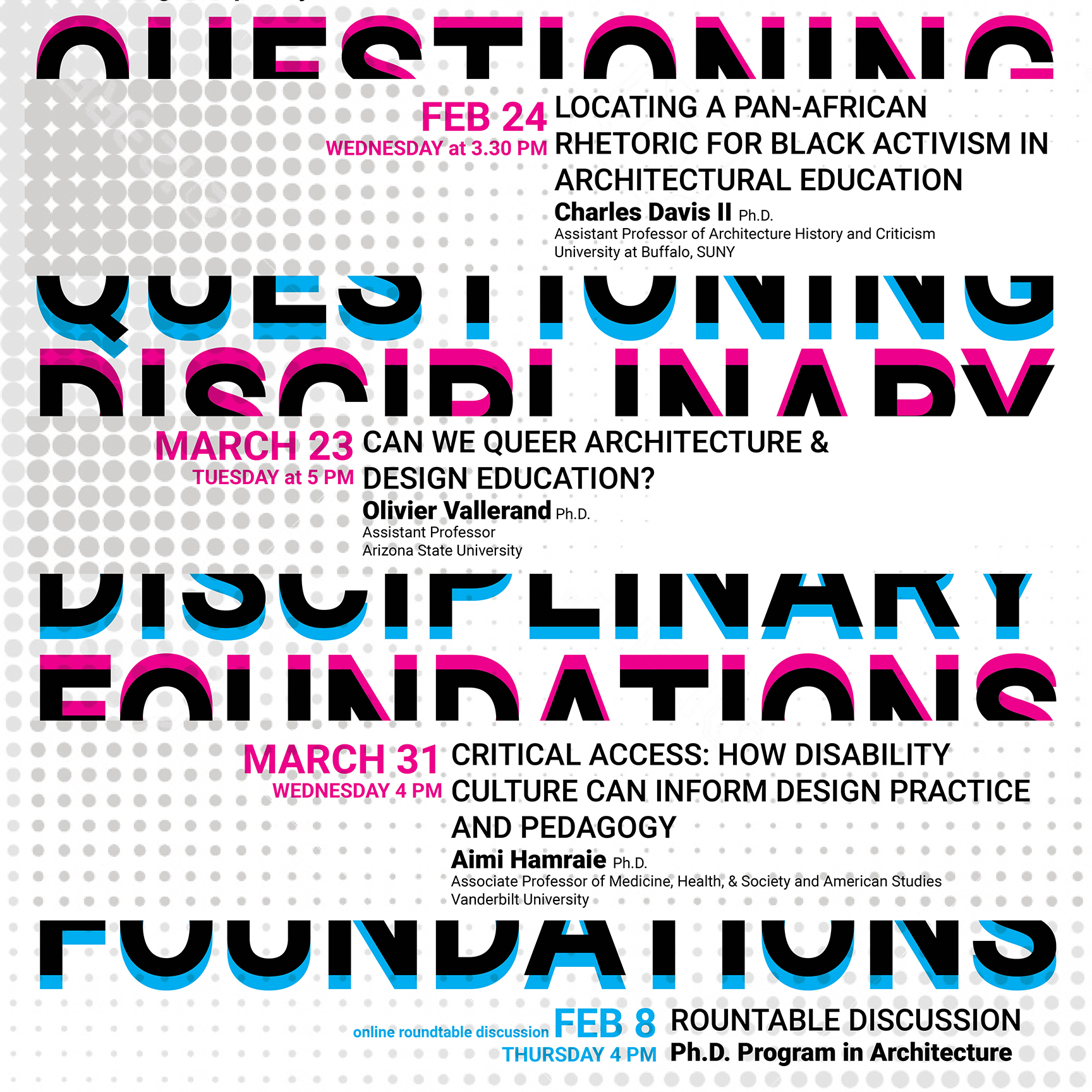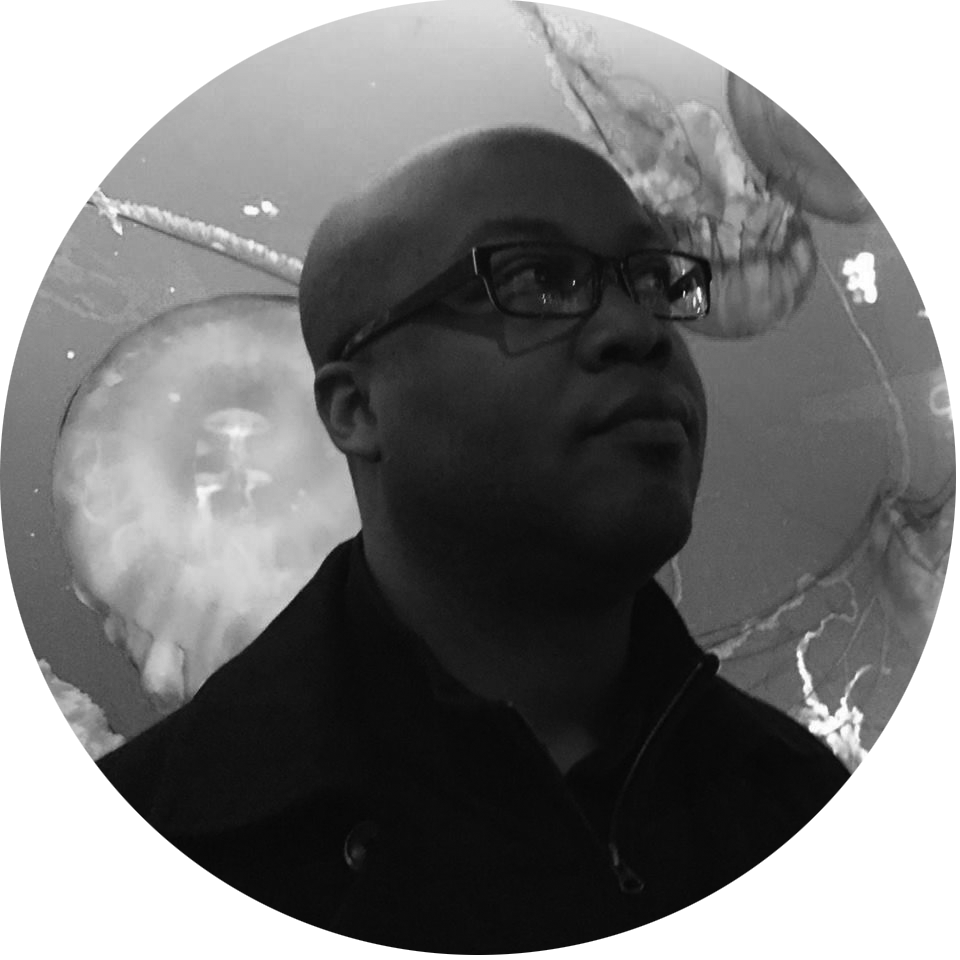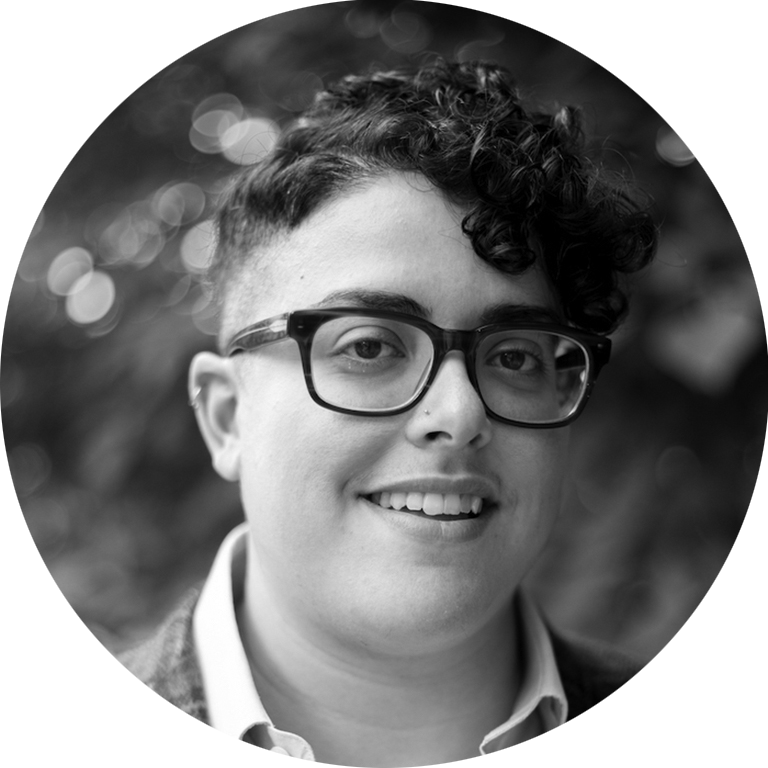
Series:
QUESTIONING DISCIPLINARY FOUNDATIONS
Spring’21
Georgia Tech | Atlanta, GA
QUESTIONING DISCIPLINARY FOUNDATIONS
Spring’21
Georgia Tech | Atlanta, GA
This series of workshops and lectures is organized by ConCave, which is a Ph.D. student led interdisciplinary student group in the College of Design. The events will take place online via BlueJeans app in the Spring 21. Events are open to all graduate students in the design related programs at Georgia Tech and also at other institutions.
The theme of the series is “Questioning Disciplinary Foundations. We must accept that our disciplines are founded on certain biases. These biases can be racial, sexist, and ableist. This workshop and lecture series aim to question these biases embedded in the disciplinary foundation of architecture. How can we fight against these biases? How can we create academia that is more inclusive and supportive for minority and marginalized groups? The main deliverable of this series will be producing a course structure that challenges the foundational biases.
To register the events, follow this link ︎
The theme of the series is “Questioning Disciplinary Foundations. We must accept that our disciplines are founded on certain biases. These biases can be racial, sexist, and ableist. This workshop and lecture series aim to question these biases embedded in the disciplinary foundation of architecture. How can we fight against these biases? How can we create academia that is more inclusive and supportive for minority and marginalized groups? The main deliverable of this series will be producing a course structure that challenges the foundational biases.
To register the events, follow this link ︎

Lecture: WEDNESDAY FEBRUARY 24, 2021 at 3.30 pm
LOCATING A PAN-AFRICAN RHETORIC FOR BLACK ACTIVISM IN ARCHITECTURAL EDUCATION
Charles Davis II, Ph.D. [He, him]
Assistant Professor of Architecture History and Criticism
University at Buffalo, SUNY
Chair, SAH Race and Architectural History Group
This talk extends my critique of whiteness in the discipline of architecture to discuss the structural forces that artificially contain the reach and scope of radical black activism in American architecture schools. Despite sharing a common analytical framework and critical vocabulary with many “subaltern” movements abroad—especially with activists in African architecture schools that have established historical ties with local freedom movements—African Americans routinely tell the story of black creativity in American architecture through an exclusively domestic lens. Within this restricted nationalist narrative, African Americans appear to labor under a regime of racism that is completely unique from that established anywhere else. Yet such a depiction belies the intellectual basis for many historical ties between leading African American and African intellectuals historically, from Alain Locke’s theorization of the “New Negro” during the Harlem Renaissance to the Nobel Committee’s current recognition of the global relevance of Black Lives Matter. Why has an isolationist narrative persisted in African American histories of architecture and what is its effects on black activism in the American academy?
I argue that at least two forces converge to artificially isolate African American architects from meaningful collaboration with African freedom struggles abroad. The first is disciplinary. During the 1990s and early 2000s, scholars in postcolonial studies struggled to develop a unifying rhetoric for their field that incorporated the historical struggles of nonwhite subjects that have yet to reach a “post” colonial condition at home. As Black architects in the United States still labor under the coercive regime of a Eurocentric artistic discipline within a political settler colony, they struggle to imagine that a practical “post” condition might look like. Simultaneously, they labor under an unearned sense of racial “exceptionalism” within the American academy as a result of national rhetorics that define the US as a perfectible liberal democracy that is only temporarily marred by its contentious race relations. These two factors combine by effectively cutting African American architects off from the critical tools of postcolonial studies while constraining them to the role of demonstrating the assimilability of Black subjects within the American architectural academy. This condition, in part, explains the overreliance of professional organization like the AIA on statistics of black licensure to diagnose the problem of racism within the American academy instead of a formal means of measuring the white racism that is embodied by the core curricula of professional schools.
Within this constrained political and institutional context, African American architects need to establish a pan-African rhetoric for “blackness” within the architectural academy that will extend the reach of their influence abroad. One meaningful way forward is to integrate the postcolonial critique of the settler colony into the core curriculum of professional architecture schools. This effort would not only build a bridge between African American and African activism globally, but it would also shift the former’s role within the academy from a mediator of white national mythology to an agent of black nationalism that is still necessary for developing and maintaining an autonomous cultural project within a settler colony context.
Charles L. Davis II is an assistant professor of architectural history and criticism at the University at Buffalo. He received his PhD in architecture from the University of Pennsylvania and has an M.Arch and B.P.S. from the University at Buffalo. His academic research excavates the role of racial identity and race thinking in architectural history and contemporary design culture. His current book project, tentatively entitled “Black By Design: An Interdisciplinary History of Making in Modern America” recovers the overlooked contributions of black artists and architects in shaping the built environment from the Harlem Renaissance to Black Lives Matter. He has published articles and essays in Architectural Research Quarterly, Journal of the Society of Architectural Historians, Harvard Design Magazine, Log, Aggregate, Append-x and VIA.
Charles is co-editor of the cultural reader Diversity and Design: Understanding Hidden Consequences (Routledge, 2015) and the forthcoming Race and Modern Architecture (University of Pittsburgh, 2020), which collects 18 case studies on the racial discourses of modern architecture from the Enlightenment to the present. His book manuscript, Building Character: The Racial Politics of Modern Architectural Style (University of Pittsburgh, 2019) traces the historical integrations of race and style theory in paradigms of “architectural organicism,” or movements that modeled design on the generative principles of nature. This research has been supported by grants from the Canadian Center for Architecture, the Graham Foundation for Advanced Studies in the Fine Arts, the University of Pennsylvania and the University of North Carolina at Chapel Hill.
LOCATING A PAN-AFRICAN RHETORIC FOR BLACK ACTIVISM IN ARCHITECTURAL EDUCATION
Charles Davis II, Ph.D. [He, him]
Assistant Professor of Architecture History and Criticism
University at Buffalo, SUNY
Chair, SAH Race and Architectural History Group
This talk extends my critique of whiteness in the discipline of architecture to discuss the structural forces that artificially contain the reach and scope of radical black activism in American architecture schools. Despite sharing a common analytical framework and critical vocabulary with many “subaltern” movements abroad—especially with activists in African architecture schools that have established historical ties with local freedom movements—African Americans routinely tell the story of black creativity in American architecture through an exclusively domestic lens. Within this restricted nationalist narrative, African Americans appear to labor under a regime of racism that is completely unique from that established anywhere else. Yet such a depiction belies the intellectual basis for many historical ties between leading African American and African intellectuals historically, from Alain Locke’s theorization of the “New Negro” during the Harlem Renaissance to the Nobel Committee’s current recognition of the global relevance of Black Lives Matter. Why has an isolationist narrative persisted in African American histories of architecture and what is its effects on black activism in the American academy?
I argue that at least two forces converge to artificially isolate African American architects from meaningful collaboration with African freedom struggles abroad. The first is disciplinary. During the 1990s and early 2000s, scholars in postcolonial studies struggled to develop a unifying rhetoric for their field that incorporated the historical struggles of nonwhite subjects that have yet to reach a “post” colonial condition at home. As Black architects in the United States still labor under the coercive regime of a Eurocentric artistic discipline within a political settler colony, they struggle to imagine that a practical “post” condition might look like. Simultaneously, they labor under an unearned sense of racial “exceptionalism” within the American academy as a result of national rhetorics that define the US as a perfectible liberal democracy that is only temporarily marred by its contentious race relations. These two factors combine by effectively cutting African American architects off from the critical tools of postcolonial studies while constraining them to the role of demonstrating the assimilability of Black subjects within the American architectural academy. This condition, in part, explains the overreliance of professional organization like the AIA on statistics of black licensure to diagnose the problem of racism within the American academy instead of a formal means of measuring the white racism that is embodied by the core curricula of professional schools.
Within this constrained political and institutional context, African American architects need to establish a pan-African rhetoric for “blackness” within the architectural academy that will extend the reach of their influence abroad. One meaningful way forward is to integrate the postcolonial critique of the settler colony into the core curriculum of professional architecture schools. This effort would not only build a bridge between African American and African activism globally, but it would also shift the former’s role within the academy from a mediator of white national mythology to an agent of black nationalism that is still necessary for developing and maintaining an autonomous cultural project within a settler colony context.
Charles L. Davis II is an assistant professor of architectural history and criticism at the University at Buffalo. He received his PhD in architecture from the University of Pennsylvania and has an M.Arch and B.P.S. from the University at Buffalo. His academic research excavates the role of racial identity and race thinking in architectural history and contemporary design culture. His current book project, tentatively entitled “Black By Design: An Interdisciplinary History of Making in Modern America” recovers the overlooked contributions of black artists and architects in shaping the built environment from the Harlem Renaissance to Black Lives Matter. He has published articles and essays in Architectural Research Quarterly, Journal of the Society of Architectural Historians, Harvard Design Magazine, Log, Aggregate, Append-x and VIA.
Charles is co-editor of the cultural reader Diversity and Design: Understanding Hidden Consequences (Routledge, 2015) and the forthcoming Race and Modern Architecture (University of Pittsburgh, 2020), which collects 18 case studies on the racial discourses of modern architecture from the Enlightenment to the present. His book manuscript, Building Character: The Racial Politics of Modern Architectural Style (University of Pittsburgh, 2019) traces the historical integrations of race and style theory in paradigms of “architectural organicism,” or movements that modeled design on the generative principles of nature. This research has been supported by grants from the Canadian Center for Architecture, the Graham Foundation for Advanced Studies in the Fine Arts, the University of Pennsylvania and the University of North Carolina at Chapel Hill.

Lecture: TUESDAY MARCH 23, 2021 at 5 pm
CAN WE QUEER ARCHITECTURE AND DESIGN EDUCATION?
Olivier Vallerand, Ph.D. [He, him]
Assistant Professor
Arizona State University
Despite its emergence in architectural discussions in the early 1990s, the idea of queerness has yet to fully transform the way we practice, teach or even experience spatial design. If queering design means multiplying possible experiences, queering design pedagogy in turn could mean multiplying points of views and resisting design norms. Based on interviews with design educators and in-class experiences, this talk explores different understandings of "queer space" in architecture and how they have been translated in queer and feminist teaching methods: supporting students; making visible the contribution of diverse people to the profession; challenging ideological assumptions inscribed in pedagogical methods and design principles; and acting beyond schools. These strategies help designers acknowledge the biases and limits of their designs to reduce the harm potentially done by their decisions.
Olivier Vallerand is a community activist, architect, historian, and assistant professor at The Design School at Arizona State University. He completed a PhD in Architecture from McGill University and post-doctoral research at UC Berkeley. His research focuses on self-identifications and their relation to the use and design of the built environment, on queer and feminist approaches to design education, and on alternative practices of architecture and design. His monograph Unplanned Visitors: Queering the Ethics and Aesthetics of Domestic Space (2020) discusses the emergence of queer theory in architectural discourse. His research has been published in the Journal of Architectural Education, Interiors: Design | Architecture | Culture, Inter art actuel, The Educational Forum,The Plan, Captures, and in the edited volumes Sexuality (Whitechapel Documents of Contemporary Art), Making Men, Making History: Canadian Masculinities across Time and Place, and Contentious Cities: Design and the Gendered Production of Space. He also regularly writes for Canadian Architect.
CAN WE QUEER ARCHITECTURE AND DESIGN EDUCATION?
Olivier Vallerand, Ph.D. [He, him]
Assistant Professor
Arizona State University
Despite its emergence in architectural discussions in the early 1990s, the idea of queerness has yet to fully transform the way we practice, teach or even experience spatial design. If queering design means multiplying possible experiences, queering design pedagogy in turn could mean multiplying points of views and resisting design norms. Based on interviews with design educators and in-class experiences, this talk explores different understandings of "queer space" in architecture and how they have been translated in queer and feminist teaching methods: supporting students; making visible the contribution of diverse people to the profession; challenging ideological assumptions inscribed in pedagogical methods and design principles; and acting beyond schools. These strategies help designers acknowledge the biases and limits of their designs to reduce the harm potentially done by their decisions.
Olivier Vallerand is a community activist, architect, historian, and assistant professor at The Design School at Arizona State University. He completed a PhD in Architecture from McGill University and post-doctoral research at UC Berkeley. His research focuses on self-identifications and their relation to the use and design of the built environment, on queer and feminist approaches to design education, and on alternative practices of architecture and design. His monograph Unplanned Visitors: Queering the Ethics and Aesthetics of Domestic Space (2020) discusses the emergence of queer theory in architectural discourse. His research has been published in the Journal of Architectural Education, Interiors: Design | Architecture | Culture, Inter art actuel, The Educational Forum,The Plan, Captures, and in the edited volumes Sexuality (Whitechapel Documents of Contemporary Art), Making Men, Making History: Canadian Masculinities across Time and Place, and Contentious Cities: Design and the Gendered Production of Space. He also regularly writes for Canadian Architect.

Lecture: WEDNESDAY MARCH 31, 2021 at 4 pm
CRITICAL ACCESS: HOW DISABILITY CULTURE CAN INFORM DESIGN PRACTICE AND PEDAGOGY
Aimi Hamraie, Ph.D. [they/them]
Associate Professor of Medicine, Health, & Society and American Studies
Vanderbilt University
Typical understandings of disability center on legal standards and guidelines, which often give designers little understanding of “disability culture,” including the myriad ways that disabled people build community by engaging in design practices together. This lecture will begin with an overview of approaches to teaching about disability in design curricula and architecture schools before pivoting to examples of “critical access” centered in disability culture, with examples from the Critical Design Lab.
Aimi Hamraie is associate professor of Medicine, Health, & Society and American Studies at Vanderbilt University, where they also direct the Critical Design Lab. Their research is centered in critical disability studies, design, and science and technology studies. They are author of Building Access: universal design and the politics of disability, a history of the Universal Design movement(2017). Their next book, Enlivened City, addresses New Urbanism, livability, and disability politics.
CRITICAL ACCESS: HOW DISABILITY CULTURE CAN INFORM DESIGN PRACTICE AND PEDAGOGY
Aimi Hamraie, Ph.D. [they/them]
Associate Professor of Medicine, Health, & Society and American Studies
Vanderbilt University
Typical understandings of disability center on legal standards and guidelines, which often give designers little understanding of “disability culture,” including the myriad ways that disabled people build community by engaging in design practices together. This lecture will begin with an overview of approaches to teaching about disability in design curricula and architecture schools before pivoting to examples of “critical access” centered in disability culture, with examples from the Critical Design Lab.
Aimi Hamraie is associate professor of Medicine, Health, & Society and American Studies at Vanderbilt University, where they also direct the Critical Design Lab. Their research is centered in critical disability studies, design, and science and technology studies. They are author of Building Access: universal design and the politics of disability, a history of the Universal Design movement(2017). Their next book, Enlivened City, addresses New Urbanism, livability, and disability politics.